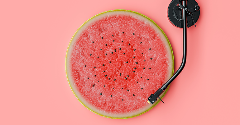News
Australian firm focuses on anti-counterfeit technology to combat fraud in the wine industry
7 Jul 2020EBottli recently launched in Australia with the goal of protecting the country’s wine exports from counterfeits that are prevalent in Asia. In China alone, potential losses to counterfeit wine are anticipated to reach $3 trillion by 2022. Australian wine exports are valued at $860 million.
The eBottli technology employs RFID/NFC, QR Code and image recognition to track bottles from the vineyard to the point of sale using the winemaker’s information and feeding it into the application’s SaaS platform for easy tracking. As of June, eBottli was working with 12 clients in Australia and specializes in premium and luxury wine brands.

“[eBottli] uses multiple tracking and geolocating technologies, is ready to use, has its own secure app and is reliable and low-cost compared to others,” said Nathalie Taquet who founded eBottli.
The company provides analytical reliability of the analyses it produces with its labeling databanks. To avoid data manipulation, everything is traced with a digital ledger. Additionally, the application is cloud-based making the anti-counterfeit solution potentially available worldwide.
Although a comprehensive solution, eBottli is not the only anti-counterfeit technology available for vintners in the Australian wine industry.
The global wine industry is worth $350 billion, and ABC Australia reported that 20% of the wine circulating is counterfeit either through a false label, a refilled bottle or a copycat brand. Just in Australia, wine commentator, Jeremy Oliver told The Weekly Times in 2017 that he estimates nearly 50% of the wine sold for over $35 in China is fake. This booming black market business has prompted other companies such as Cellr and Barossa Winery to take measures aimed at certifying the authenticity of Australian exports.
Cellr, which received a $150,000 investment from Australia’s Advanced Manufacturing Growth Centre in March, developed a solution that can be embedded within a bottle lid. The solution uses Near Field Communication (NFD) and Radio Frequency Identification (RFID) to create a sort of birth certificate within the lid that consumers can then verify with their mobile phones.
Barossa Winery introduced microchip bottles last year that also use NFC technology to let purchasers scan bottles with their smartphones to determine the authenticity of the beverage.
Smart bottles seem to be the Australian wine industry’s approach to combat the fake wine market and secure its future. To be effective, these solutions need to be integrated into the bottling process and not just implemented on an ad hoc basis. If Australia can show that through these efforts it can curb the infiltration of counterfeits in the market, the world may take notice and begin to implement similar technologies.
Related news

Retail landscape lacks nutritious and affordable food, says ATNi
30 Dec 2025
A rapid increase in modern food retail has given retailers growing influence over consumer diets, according to global non-profit ATNi’s latest assessment.
Read more
Debate over ban on ‘meaty’ names for plant-based products reaches stalemate
26 Dec 2025
The debate over a ban on plant-based products using “meaty” terms has reached a stalemate, leaving manufacturers in limbo and still facing overhauls to their marketing and packaging.
Read more
Multi-sensory food and drink products to gain traction in 2026
16 Dec 2025
Trend forecasters predict that sensory elements will play a larger role, helping food and beverage brands differentiate themselves in a competitive market in 2026.
Read more
Big appetite for M&A between European and US food and drink companies
3 Dec 2025
Persistent tariffs on EU food and beverage exports have helped drive record levels of M&A activity between European and US companies this year, according to analysis by ING.
Read more
Non-UPF Program extends certification scheme to entire food industry
30 Nov 2025
The Non-UPF Program has extended its certification scheme to the wider food sector, championing a move towards healthier consumption habits.
Read more
Lancet study links UPFs to chronic disease risk
26 Nov 2025
UPFs are consistently associated with an increased risk of diet-related chronic diseases, according to a comprehensive review of global evidence in The Lancet .
Read more
Concerns swirl around cinnamon’s compliance with EU law
25 Nov 2025
Cinnamon may be a top functional ingredient, but it needs stronger protocols to ensure it meets EU food safety laws and quality standards, say researchers.
Read more
Oat Barista: Innovation for game-changing beverages
20 Nov 2025
Oat Barista is a clean label, sustainable, and innovative drink base specifically designed to create the perfect foam in one single ingredient.
Read more
How younger consumers are redefining ingredient choices and rejecting brand loyalty
18 Nov 2025
Gen Z and millennial consumers’ preferences for transparency, functionality, and purpose are “redefining the very nature of consumption itself”, says SPINS.
Read more
Hybrid formats and flexible positioning to disrupt category norms in 2026
17 Nov 2025
Trend forecasters expect food and drink to move more fluidly across occasions, functions, and formats as consumers seek versatility, novelty, and convenience.
Read more